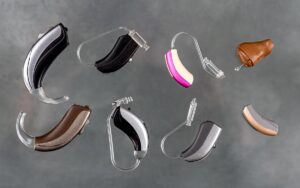What would you do if your hearing aids stopped working at a time when you most needed them. Like when you’re in a crucial meeting.
No one wants that to happen! It’s important to invest in hearing aids for your hearing, your happiness, and your general health. Keeping them functioning in peak condition lets you obtain the greatest possible benefits from them.
The following are 7 steps to help you properly care for your hearing aids and keep them working at peak condition.
1. Become Familiar With The Instruction Manual
The best results will be attained when you utilize the manual that was included with your hearing aids. Many technical challenges you might be having can be sorted out by the trouble-shooting guides that are in these manuals.
If something isn’t functioning correctly, always check the manual first.
Any problems involving the performance of your hearing aid should be covered in the manual. This is important even if you’ve had hearing aids before because your new devices might not work the same way. Obviously, hearing aid technology has progressed significantly in recent years.
2. Keep Your Hearing Aids Clean
Bacteria like to use hearing aids as a breeding ground.
While there’s always some harmless bacteria on your skin, if you don’t wash your hands or properly clean the hearing aids, it can cause an infection.
Ear infections can lead to additional hearing issues. Most are temporary, but some can cause irreversible damage.
Bacteria like damp surfaces, so clean each hearing aid with a dry cloth before and after every use. Never put your hearing aids in water. Disinfect them frequently with an alcohol-free wipe, being careful not to get it too wet.
Clean them carefully once every week, including any custom mold pieces.
The earpiece will remain free of any wax accumulation with frequent cleaning.
3. Keep Your Hearing Aids Dry
Getting wet is not something that most hearing aids are made to do. Even high humidity can damage them. After cleaning, don’t put them on the nightstand.
Hearing aids lying on a surface in your home will collect dust that carries bacteria.
Follow the recommendations of the manufacturer and store them in a cool dry place. Before you go into the shower or take a bath, make sure you take them out. Keep your hearing aids in another room during your shower because there will be moisture in the air.
When it rains, bring an umbrella.
Your battery may drain faster because it has to make use of more energy in a moist environment, so you should always carry your charger with you.
Don’t allow your hearing aid to be exposed to extreme heat, such as a blow dryer or sauna, as that can also do damage to them.
4. Keep The Battery Charged
Keep your battery charged and take a backup when you attend a significant event.
When you take your hearing aids off to go to bed, turn them all the way off. If you’re not going to wear them for a prolonged amount of time, always take out the battery. If you let your hearing aids sit for long time periods with the battery in them, the life of the battery can be diminished and their delicate electronics can be damaged by battery acid.
You can substantially extend the life of your batteries with this guidance but always carry a spare battery, just in case.
5. Have Your Ears Professionally Cleaned
A little bit of wax is pushed into your ear canal each time you insert your hearing aid. If you let this earwax build up, it may eventually cause voices to sound muffled. If your hearing experience doesn’t seem right, make an appointment with a hearing specialist to check for excess earwax accumulation.
With the correct tools and know-how, it’s a simple procedure. A hearing professional should be the only person who performs this procedure.
6. Put in Your Hearing Aids Above a Soft Surface
Don’t chance dropping your hearing aids in the sink or toilet. This can easily lead to dropping the hearing aid and damaging it. Over a couch, bed, or soft folded towel would be a suitable place to insert them.
7. Consult a Specialist if You Aren’t Experiencing Better Hearing
You need to keep wearing your hearing aids even if you aren’t currently having the best success. Your situation can be enhanced. Schedule an appointment for a consultation.
[blogcta]





